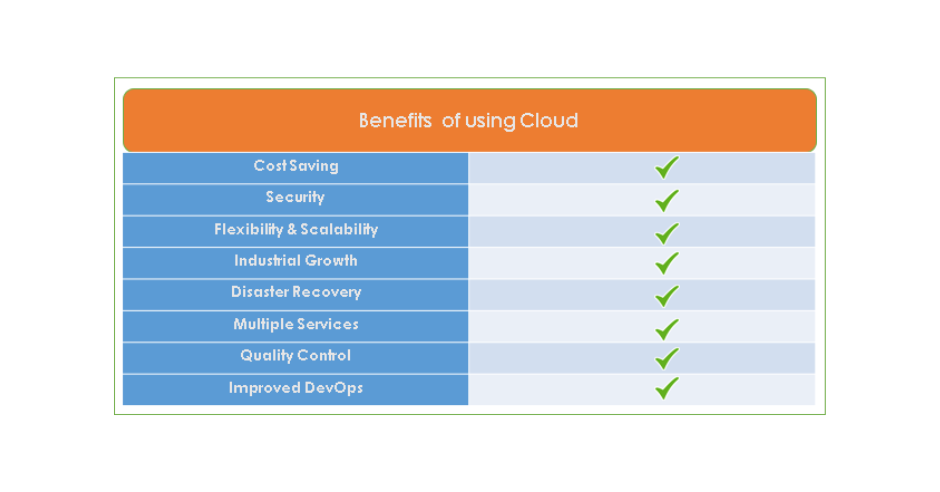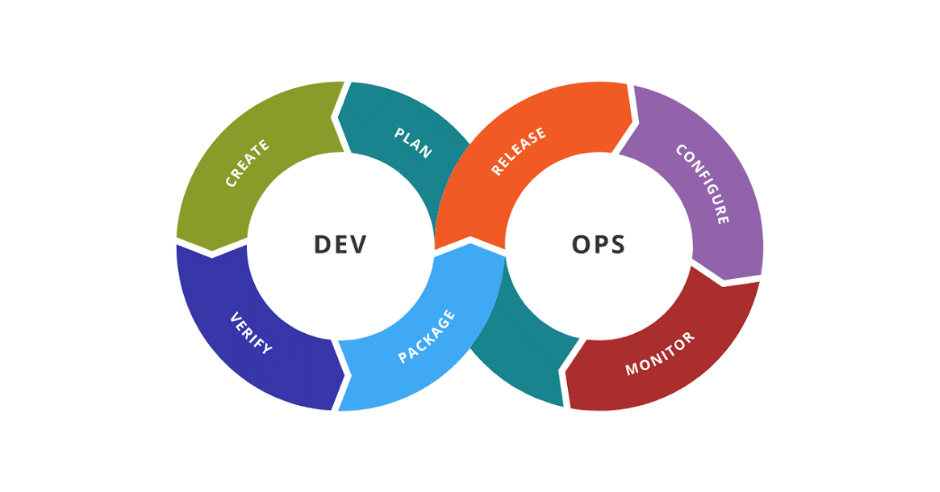UK Office
20-22 Wenlock Road, London, N1 7GU
+44 7360 260701

Cloud is just a metaphor for the internet. In simple terms, Cloud is the process of storing data into internet and then managing and accessing it from anywhere around the world.
Clous has become an important feature in any organization or business because of its flexibility. It has been around for two decades, and the businesses and organizations are using it according to their need. The cost efficient, easy to manage and its easy accessibility has caused many organizations to adopt it.

Companies that adopted cloud technology gained very much of the benefits than those who didn’t including:

Hence, it is a well-known fact that adopting cloud computing doesn’t only give you the aforementioned benefits but also take your company to a point where you compete with other companies in terms of digital transformation challenges.
There are many organizational benefits of moving to cloud, such as:
It works as a pay-as-you-go system that means that you are required to buy the needed space for as much as you want for your stakeholders and clients and do not worry about spending money on the excessive space that you do not need.

It just works like an individual person wo buys storage from Google Drive etc. for storage they need making it a very cost-effective solution.
Since the information of your organization is stored on the cloud rather than on any hard drives, this makes it more secure because accessing the information outside of your organization is a hard task.

With the encryption systems and secure logins, one is unable to steal the information. A clouds host is consistently monitoring the security and it is the reason why 94% of the businesses claim to feel more secure after adopting cloud.
When using cloud computing the number of options is vast. Depending on the size of the organization, business needs, workloads, etc. companies can choose cloud infrastructure and services accordingly.

On the other hand, Cloud computing allows you to use as many or as few resources as you need. Therefore, depending on your business needs or projected traffic to your business you can choose to increase or decrease your investment in IT infrastructure.
With all data stored in the ‘cloud’ backup and recovery of data and applications is quicker and more reliable.

This applies to all sizes of organizations and volumes of data. 20% of cloud users claim disaster recovery in four hours or less as opposed to only 9% of non-cloud users.
Cloud offers multiple services including cloud deployment models including Public, Private, Hybrid & community based.

These deployment models are very important and should be considered at an early stage while developing your cloud strategy.
On the other hand, cloud has also its own service models such as, SaaS, PaaS, and IaaS.
In cloud, all the files and documents of your organization are stored in one place.

With the easy access to all those things, it is easy to maintain and keep a record of them with very much lessened human error.
The main benefit of DevOps is an increase in the quality and pace of innovative solution deployments. This is achieved through a flexible communication process that allows for traditionally isolated teams to work together throughout the entire development cycle.

If an organization isn’t utilizing cloud computing in conjunction with DevOps, they’re missing out on a massive opportunity for quicker product development processes, along with the obvious business operations enhancements the cloud provides.
The continuous growth of cloud computing directly impacts the business across all industries.

With all growing use of AI, machine learning and edge computing in cloud, the industry will adopt such technologies and will continue its rapid growth and evolution.